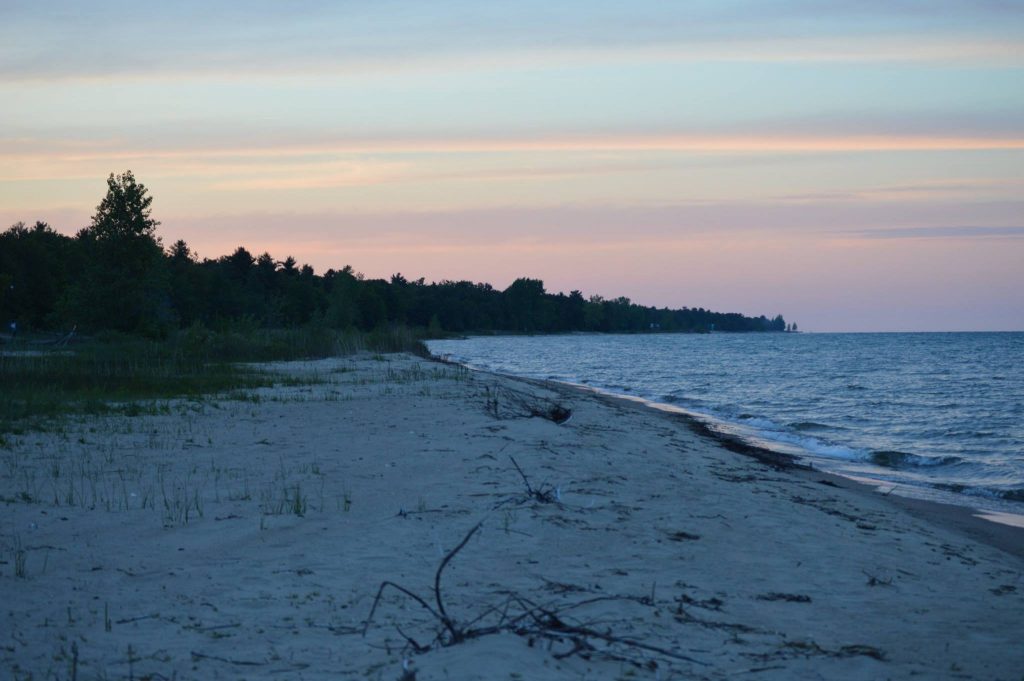What Labor Day Travelers Should Know Before Visiting Michigan Beaches
Michigan beaches are changing, and it’s more important than ever to take care of them when you visit.

This Labor Day weekend, people will likely flock to the beaches along Michigan’s coastline to get in a few final days of sand and sun as the summer starts to come to an end.
But before you grab your sunscreen and cooler, there are some things to keep in mind.
“When you take storm season with record high water levels, it really does start to increase the erosion along the shoreline.” – Garret Ellison, MLive.
MichMash hosts Cheyna Roth and Jake Neher talk with MLive’s Garret Ellison about what you can expect after a summer of high water levels, beach erosion, and coronavirus.
Subscribe to MichMash
Watch for warnings
As far as safety on the Great Lakes go, be on the lookout for red flags or other signs saying that it’s not safe to swim.
The Michigan Department of Natural Resources will tell you when waves are dangerously high, currents are dangerously strong, or when the water is contaminated.
Also make sure not to dive from piers and other structures in or around the water when diving is prohibited.
Don’t forget, we’re still in the middle of a pandemic
There’s also the fact that coronavirus is still an active concern in the state and nationwide. As a result, health officials recommend keeping in small groups, and beaches are trying to enforce social distancing. The need to social distance may also interfere with your ability to even get to the beach. A lot of parks are closing down their parking lots when they’re at half capacity.
There’s a litterbug infestation
When you hit the beach, it’s also possible that you’ll see more trash. Because the coronavirus pandemic closed a lot of indoor activities in the spring and summer, people have been at the beaches in droves this season. And that tends to mean more trash, while at the same time, beach cleanups have been canceled or reduced in size.
High water levels and shore erosion mean smaller beaches
Historically high water levels in areas of the Great Lakes will also impact what visitors see at the beaches.
“People would notice this, you know, immediately upon going to the beach or the shoreline,” said MLive’s environmental reporter, Garret Ellison.
“And we’re coming into storm season here and a couple of months, which, when you take storm season with record high water levels, it really does start to increase the erosion along the shoreline. And that’s been happening over the last couple years.”
Related: Shoreline Erosion Isn’t Just Houses Falling Into Great Lakes. It Affects You Too.
Giant piles of rocks might affect your ability to walk along the shoreline
As a result of the eroding shoreline, private and public properties are installing rock armor and other types of armoring along the lakeshore in order to protect homes and infrastructure.
This type of armor is controversial because it keeps people from being able to walk along the shoreline in a lot of cases, Ellison said. The other concern is that armoring the shoreline could be exacerbating erosion somewhere else.
“It may protect your property, but it may cause the lake to start to, kind of, eat away on either side of where the rock armor starts and ends,” Ellison said. “So it can create issues between neighbors.”
There are also long-term concerns about the impact on the shoreline itself.
“There’s some research to suggest that the more the shoreline is hardened, the less it reduces the beach’s natural ability to replenish itself when water levels go back down,” he said.
As a result of shoreline erosion, the Great Lakes beaches look dramatically different than they did just a few years ago, said Ellison. While 2013 saw record low lake levels, the high water levels mean the size of beaches has been reduced quite a bit.
“Erosion is always going to be happening, there’s really just no way around it,” Ellison said. “And so the way to deal with it is to get out of the way.”
“And that’s kind of what’s been going on in the last few years. People are moving houses away from bluffs, away from the edge of the shoreline, you know, starting to realize that, the lake is in charge.”
More From MichMash:
MichMash: Why Michigan’s Recreational Marijuana Industry Isn’t Helping Those Harmed by Drug Policies
MichMash: Three Pieces of Advice to Make Sure Your Vote Counts This November
MichMash: Welcome Back? College Students Anxious, Excited About Return to Campus
Trusted, accurate, up-to-date
WDET is here to keep you informed on essential information, news and resources related to COVID-19.
This is a stressful, insecure time for many. So it’s more important than ever for you, our listeners and readers, who are able to donate to keep supporting WDET’s mission. Please make a gift today.
